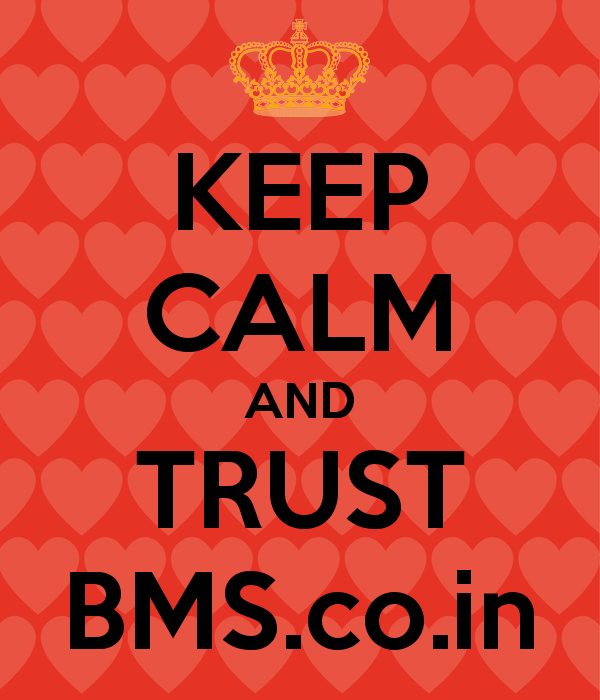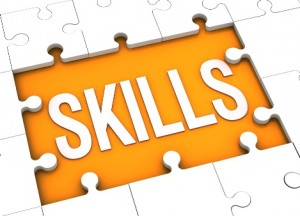BMS or Bachelor Of Management Studies is a course that teaches students to become the jack of many trades. With about 40 different subjects to learn, this course promises a lot of knowledge and insight to a potential manager in making. All the subjects have been chosen and crafted with the purpose of ensuring that students are capable and qualified to become proficient managers at the work place and one of the most important function of a good manager is to be able to understand his people and their skills that help in getting the work done.
FAQ 1. What is FHS?
The Foundation of Human Skill is based upon the insatiable and limitless wants and desires of people. If a person wants something, they must work towards that achievement. This involves what economists refer to as “absolute advantage”, or the ability of human capital and labor to produce goods and services at a cost.
From absolute advantage, we derive “comparative advantage”. Comparative advice describes the ability to produce goods and services at a cost less than that of another producer. The desire to “be better off” drives human skill, which can be can be highly specialized and ultimately successful.
FAQ 2. Why Do I Have To Study This?
Foundation Of Human Skills or FHS as it is popularly known is a subject in Semester 1 of the BMS course. Closely related to understanding of psychology and human behavior, this subject is interesting and a little different from the regular commerce based subjects we come across in the course.
Aren’t all of us similar in certain terms and completely different in others? Two men share the same anatomy but can have personality traits and behavioral traits that are totally opposite to each other, understanding these differences and utilizing them to our benefit is what the subject is all about.
FAQ 3. Is FHS BoorinGGG?
Contrary to popular student belief, this subject is a lot of fun as it helps you not only understand people but understand yourself as well. It is a great feeling to be able to distinguish between your personality traits, behavioral patterns, different attitudes, types of intelligence and the so many interesting models used to understand people and their behavior.
FAQ 4. Do I need to join a coaching class for FHS?
No, you definitely do not need to join any sort of tutions or classes for this subject, the only way you can crack this one is by understanding the theories and applying them on yourself and your friends, it’s the best possible way to remember all the traits and types of people.
FAQ 5. What is the Syllabus for FHS?
Below has been mentioned the broad outline of the FHS Syllabus and short yet easy to understand descriptions of the core concepts of each unit.
Unit 1: Understanding of Human Nature:
a. Individual behavior
– What is Individual behavior?
Individual behavior refers to how individual behaves at work place , his behavior is influenced by his attitude,personality,perception, learning and motivating. This also refers to the combination of responses to internal and external stimuli.
b. Personality and Attitude
– What is Personality?
Personality has to do with individual differences among people in behavior patterns, cognition and emotion. Different personality theorists present their own definitions of the word based on their theoretical positions.
The term “personality trait” refers to enduring personal characteristics that are revealed in a particular pattern of behaviour in a variety of situations
– What is Attitude?
An attitude is an expression of favor or disfavor toward a person, place, thing, or event (the attitude object). Prominent psychologist Gordon Allport once described attitudes “the most distinctive and indispensable concept in contemporary social psychology.” Attitude can be formed from a person’s past and present. Attitude is also measurable and changeable as well as influencing the person’s emotion and behavior.
c. Thinking, Learning and Perceptions
– What is Thinking?
Thinking can refer to the act of producing thoughts or the process of producing thoughts. In spite of the fact that thought is a fundamental human activity familiar to everyone, there is no generally accepted agreement as to what thought is or how it is created.
– What is Learning?
Learning is the act of acquiring new, or modifying and reinforcing, existing knowledge, behaviors, skills, values, or preferences and may involve synthesizing different types of information. The ability to learn is possessed by humans, animals and some machines. Progress over time tends to follow learning curves.
– What are Perceptions?
Perception is the organization, identification, and interpretation of sensory information in order to represent and understand the environment.[1] All perception involves signals in the nervous system, which in turn result from physical or chemical stimulation of the sense organs.
Unit 2:
d. Introduction to Group Behavior
– What is Group Behavior?
Group dynamics is a system of behaviors and psychological processes occurring within a social group (intragroup dynamics), or between social groups (intergroup dynamics). The study of group dynamics can be useful in understanding decision-making behavior, tracking the spread of diseases in society, creating effective therapy techniques, and following the emergence and popularity of new ideas and technologies.
e. Organizational processes and systems
– What is an Organizational process?
Organizing, like planning, must be a carefully worked out and applied process. This process involves determining what work is needed to accomplish the goal, assigning those tasks to individuals, and arranging those individuals in a decision‐making framework (organizational structure). The end result of the organizing process is an organization — a whole consisting of unified parts acting in harmony to execute tasks to achieve goals, both effectively and efficiently.
Unit 3:
f. Organizational culture
– What is Organizational culture?
Organizational culture is the behavior of humans within an organization and the meaning that people attach to those behaviors. Culture includes the organization’s vision, values, norms, systems, symbols, language, assumptions, beliefs, and habits. It is also the pattern of such collective behaviors and assumptions that are taught to new organizational members as a way of perceiving, and even thinking and feeling. Organizational culture affects the way people and groups interact with each other, with clients, and with stakeholders.
g. Motivation at work place
– What is Motivation?
Motivation is a theoretical construct, used to explain behavior. Motives are hypothetical constructs, used to explain why people do what they do, for example, when they use some strategy to achieve a goal. According to Maehr and Meyer, “Motivation is a word that is part of the popular culture as few other psychological concepts are”.
Unit 4:
h. Organizational change and creativity
– What is creativity?
Creativity is a phenomenon whereby something new and valuable is created (such as an idea, a joke, an artistic or literary work, a painting or musical composition, a solution, an invention etc.). The ideas and concepts so conceived can then manifest themselves in any number of ways, but most often, they become something we can see, hear, smell, touch, or taste.
i. Organizational development and work stress
– What is work stress?
While some workplace stress is normal, excessive stress can interfere with your productivity and impact your physical and emotional health. And your ability to deal with it can mean the difference between success or failure.
You can’t control everything in your work environment, but that doesn’t mean you’re powerless—even when you’re stuck in a difficult situation. Finding ways to manage workplace stress isn’t about making huge changes or rethinking career ambitions, but rather about focusing on the one thing that’s always within your control: you.
You can view the detailed syllabus HERE!
FAQ 6. How Do I Study FHS?
Well BMSites, can be divided into 4 broad categories of students and it’s better you identify and accept yourself so you know which kind of help you are going to need in cracking a particular subject.
The category one is the Topper Type, now you are the topper type if you attend all lectures regularly, have all notes and assignments complete on time and religiously spend about 2-3 hours (maybe more) of your day in studying. For you every mark counts and make sure you fight tooth and nail to get your efforts worth.
With papers like FHS that are a lot of theory you need to know that professors do not usually give full marks and so you need to pull up with the frills.
If you have a viva for the internal you need to focus on the definitions because that is where you can beat the average student, definitions are a weakness of 90% of the crowd. If it’s a written paper then things change completely.
Usually we are given out a set of few chapters or answers to learn up for the mini tests or internals and for someone who has given just about 45 minutes a day of targeted study to FHS, scoring is like a piece of cake. 45 dedicated minutes a day 3 days a week and FHS internals and surprise tests and totally sorted. The bonus is that it helps you cover up 75% of your syllabus on your own before the Semester and just leaves out the doubts to be sorted during regular lectures.
You need to know how to write answers, use diagrams well and complete as much as you can in a given time frame for your semester exams. If you are from the topper category and are actually going to spend time on scoring make sure you do the theories and models well.
Category two is the Good student who starts studying a month before the exams, for you to crack the Viva and internals about 30 minutes of FHS for a week before the exam should be good enough. You need to know everything and not miss out on any part of the given syllabus for the exam.
Since you are putting in a month before the exams, take up FHS unit wise for 15 days, about 30-45 minutes a day is more than enough, to help you pass. Of course your own speed, your understanding of the concepts and the number of lectures attended play an important role. In case you are weak with the language you should be aware of that reality. Make sure you have all doubts cleared 10 days before the exams so that you can revise.
Learning FHS isn’t tough, it’s very interesting but recollecting and more than that scoring is where it takes efforts.
Now if you are the Average and very commonly found BMS student who spends about the last week before exams in opening their books then, FHS is a subject you must take up as a break between the heavy and practical subjects like accounts and stats. Make sure you have read everything at least once.
Definitions, theories and models is out of the question but do make sure you do the important question sets given out in class very well and you know what each chapter is talking about so that you can write things in your own words and pass.
FHS is not a KT subject at all, it’s super easy to crack and dedicated efforts can help you score very well, making this one of your core GPA contributors.
FHS Fun Tips To Freak Out:
1. Read the case studies at the back of each chapter, they can be very interesting in this subject.
2. ‘Google’ the models and apply them on your friends and peer’s will be a lot of fun to know and learn at the same time.
FAQ 5. Reference Books for FHS?
To Score above to score above 80 marks, make your own notes by referring to 2 good authors reference books + refer to professor notes + do research on internet to get examples.
To score above 70 marks, refer to textbook by Vipul Prakashan for Foundation of Human Skills, BMS Sem 1 and also make your own notes from the book.
To get above 60 marks, just take any textbook and ratta maar!
Most preferred / recommended textbooks in FHS are by Vipul Prakashan, Rishab Publications and Himalaya Publications.
You can also try:
Mumbai University’s Suggested Reference Books for ‘Foundation of Human Skills’
FAQ 6. What are the best Notes I can refer for FHS?
Foundation Of Human Skills Notes – Managementparadise.com











awesome great good & short explanation